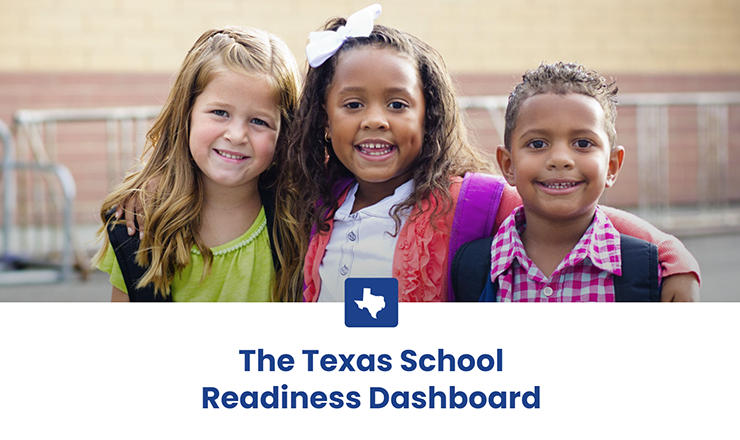EVIDENCE POINTS TO A SET OF STATE POLICY CHOICES THAT ARE MOST IMPACTFUL FOR YOUNG CHILDREN
Prenatal-to-3 State Policy Roadmap shows states the top public investments for better infant and toddler outcomes.
AUSTIN, Texas – Oct. 7, 2021 – States across the country have an unprecedented opportunity to invest in their systems of care to ensure all children have the opportunity to thrive from the start. State policy leaders can look to the evidence of what works in the second annual Prenatal-to-3 State Policy Roadmap released today by the Prenatal-to-3 Policy Impact Center at The University of Texas at Austin LBJ School of Public Affairs.
The prenatal to age 3 period is the most rapid and sensitive period of human development, and it sets the foundation for long-term health and wellbeing. Unfortunately, many children lack the opportunities they deserve, and these disparities are often influenced by state policy choices.
The Prenatal-to-3 State Policy Roadmap is a groundbreaking look at the policy solutions that the most rigorous evidence to date shows best support and strengthen the earliest years of the developing brain and body. The 2021 Roadmap outlines five policies and six strategies that foster the nurturing environments needed for infants and toddlers, while reducing long-standing disparities in outcomes among racial and ethnic groups and socioeconomic status. When combined, the policies and strategies create a system of care that provides broad-based economic and family supports, as well as targeted interventions to address identified needs.
The Roadmap identifies the five effective policies as: expanded income eligibility for health insurance, reduced administrative burden for SNAP, paid family leave, a state minimum wage of at least $10, and a refundable state earned income tax credit. The six effective strategies identified include: comprehensive screening and connection programs, child care subsidies, group prenatal care, evidence-based home visiting programs, Early Head Start, and Early Intervention services.
“The COVID-19 pandemic has exposed the complex social, economic, and health needs of families with young children. Parents continue to struggle to maintain employment and care for their little ones,” said Dr. Cynthia Osborne, director of the Prenatal-to-3 Policy Impact Center and associate dean of the LBJ School of Public Affairs. “What we do know is that no one institution can do it all – it takes a system of care to ensure healthy children are born to healthy parents, and that parents have the skills, resources, and institutional supports they need to work and care for their children.”
The inaugural 2020 Roadmap served as the baseline for states showing where each was on implementing the most effective policies and strategies and it provided clear guidance on next steps. The streamlined 2021 Roadmap focuses on the progress states have made over the last year, tracks the most relevant child and family outcomes measures, and demonstrates where each state can improve for a stronger and more equitable prenatal-to-3 system of care.
The 2021 Roadmap shows that few states are doing all they can, but some moved forward despite the historic challenges of the last year. Only four states—California, the District of Columbia, Massachusetts, and New Jersey—have adopted and fully implemented all five effective policies, meaning that families in these areas can currently access the level of benefits that rigorous research states is necessary to impact PN-3 outcomes. Eight states have fully implemented four out of the five policies. Yet, even among states that have implemented a given policy, the generosity and reach of the policy varies considerably across states. To date, seven states—Georgia, Mississippi, North Carolina, South Carolina, Tennessee, Texas, and Wyoming—have not fully implemented any of the effective policies.
Several states have invested in evidence-based strategies this past year through legislative or administrative action by implementing changes in statewide comprehensive screening and connection programs, expanding eligibility for childcare subsidies, investing in group prenatal care, increasing oversight of home visiting programs, expanding access to Early Head Start, and offering Early Intervention services to more children.
“The Prenatal-to-3 State Policy Roadmap is transformational for early childhood because it has distilled the most rigorous evidence to date into a clear set of policy options for state leaders,” said Barry Ford, President and CEO of the Council for a Strong America. “The Policy Impact Center and the annual Roadmap are invaluable resources for building stronger, more equitable systems that ensure infants and toddlers in each state thrive.”
Find your state’s 2021 Prenatal-to-3 State Policy Roadmap with updated data at https://pn3policy.org/pn-3-state-policy-roadmap-2021.
###
Prenatal-to-3 Policy Impact Center Health, maternal care, family life, economic security and early care and learning—the first three years shape the future of every child’s life. The Prenatal-to-3 Policy Impact Center translates research on the best public investments into state policy actions that produce results for young children and society. Our team of researchers and nonpartisan policy experts works with policymakers, practitioners, and advocates to navigate the evidence of what works, set priorities, act with confidence, and analyze results for continuous improvement. We help connect the complex social, economic and health needs of families that support effective child development in the earliest years—seeking effective policies for each and looking at how all can work together for the greatest impact.



